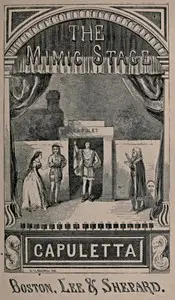"The Pretentious Young Ladies" by Molière is a comedic play written in the mid-17th century. This one-act comedy provides a satirical take on the affectations and pretentiousness prevalent in Parisian society, particularly among young women who aspire to higher social status and intellectual refinement. The era of the play is characterized by the cultural shifts of the French royal court, highlighting Molière’s departure from Italian theatrical traditions. The plot revolves around two young women, Madelon and Cathos, who are immersed in the pretentious behaviors that come with their pursuit of love and status. Their father, Gorgibus, hopes to arrange marriages for them with two suitors, La Grange and Du Croisy. Instead of valuing their sincere intentions, the young ladies disregard them for their lack of social grace and sophistication, exemplifying their misguided beliefs about romance and courtship. The comedy escalates as the suitors, frustrated by the ladies’ affectation, plot to deceive them by disguising themselves as men of higher status, only to have their identities revealed in humorous twists. As the characters navigate their foolish pretensions, Molière critiques the absurdity of social climbing and the superficiality of the so-called "gallant" behavior of the time. (This is an automatically generated summary.)

The Pretentious Young Ladies
By Molière
"The Pretentious Young Ladies" by Molière is a comedic play written in the mid-17th century. This one-act comedy provides a satirical take on the affe...
Genres
Released
2004-09-01
Formats
mobi
epub (images)
mobi (images)
epub
epub3 (images)
Free Download
Overview
About the Author
Jean-Baptiste Poquelin, known by his stage name Molière, was a French playwright, actor, and poet, widely regarded as one of the great writers in the French language and world literature. His extant works include comedies, farces, tragicomedies, comédie-ballets, and more. His plays have been translated into every major living language and are performed at the Comédie-Française more often than those of any other playwright today. His influence is such that the French language is often referred to as the "language of Molière".
Total Reviews
10.0k
Total reviews from Goodreads may change

















